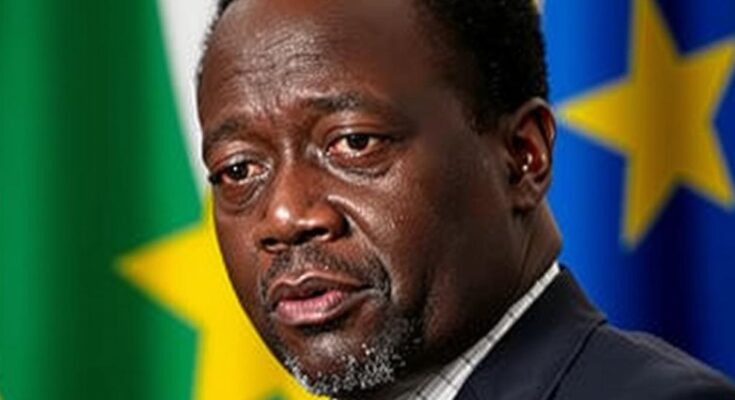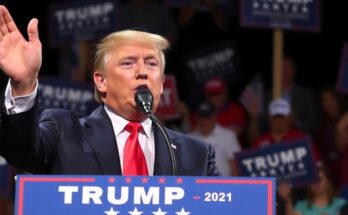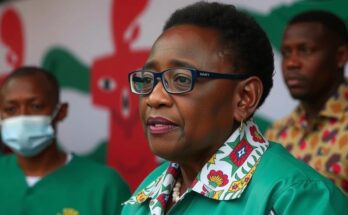Former President Joseph Kabila is rallying support to oppose current President Félix Tshisekedi’s plan to revise the Constitution. Kabila’s coalition, the FCC, claims this revision poses risks to national stability and security, arguing that it distracts from Tshisekedi’s governance failures. The backdrop includes Kabila’s prior unsuccessful attempt to amend the Constitution in 2015, which was met with robust public resistance.
Joseph Kabila, the former President of the Democratic Republic of Congo (DRC), is actively mobilizing support among the Congolese populace to thwart current President Félix Tshisekedi’s initiative to form a commission of experts for the purpose of revising the nation’s Constitution. The Common Front for the Congo (FCC), Kabila’s political coalition, has issued a call for resistance against the proposed constitutional revision, asserting that citizens must unite to “defend their rights, their freedom, and their sovereignty.” The FCC’s statements reflect a deep concern regarding the potential implications of this revision, which they characterize as a threat to the peace, unity, and stability of the DRC. The tensions intensified following President Tshisekedi’s justification of the revision effort, in which he asserted that the 2006 Constitution was crafted by “compatriots representing the diversity of the Congolese nation,” countering previous claims that it was authored by foreign entities. The FCC accused President Tshisekedi of orchestrating a political scheme aimed at distracting the public from his administration’s failures in maintaining security and governance. Historical context reveals that Kabila himself attempted to amend the Constitution in 2015 but was compelled to withdraw under intense opposition from religious groups, civil society, and the opposition parties. This recurring theme of constitutional reform underscores the fraught political landscape in the DRC and the enduring legacy of Kabila’s presidency.
The Democratic Republic of Congo has a tumultuous political history characterized by struggles for power and governance. Under the presidency of Joseph Kabila, which lasted until 2019, the country witnessed significant political unrest, particularly surrounding constitutional amendments. The 2006 Constitution is viewed by many as a landmark document for its potential to stabilize governance in the DRC. However, efforts to revise this Constitution have been fraught with controversy, often resulting in public outcry and civil unrest. Kabila’s previous attempts to modify the Constitution sparked widespread protests, largely due to fears that these changes would threaten democratic processes and national unity. The current political climate, under President Félix Tshisekedi, has revived these concerns, as calls for a constitutional revision emerge once again.
In summary, the political dynamics within the DRC remain tense as former President Joseph Kabila seeks to mobilize citizens against the constitutional revision proposed by President Félix Tshisekedi. The FCC’s stance reflects a broader apprehension regarding potential threats to national stability and citizen rights. Historical precedence highlights the challenges associated with constitutional amendments in the DRC, suggesting a continued struggle between competing political factions over the future direction of governance.
Original Source: allafrica.com




